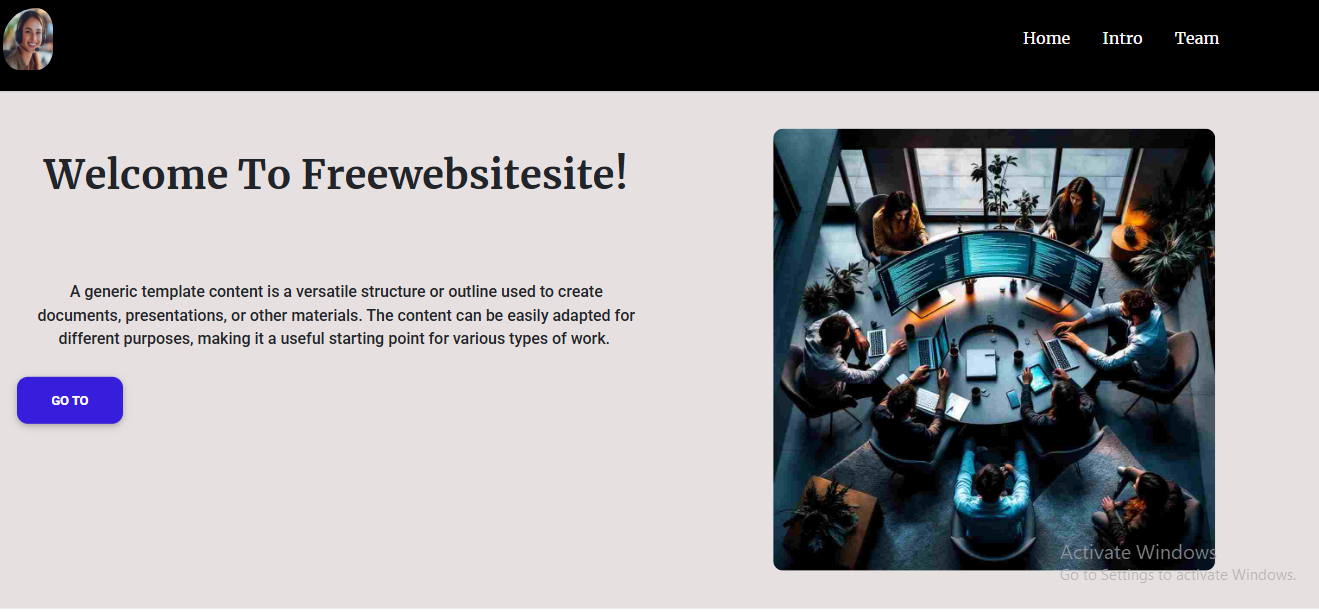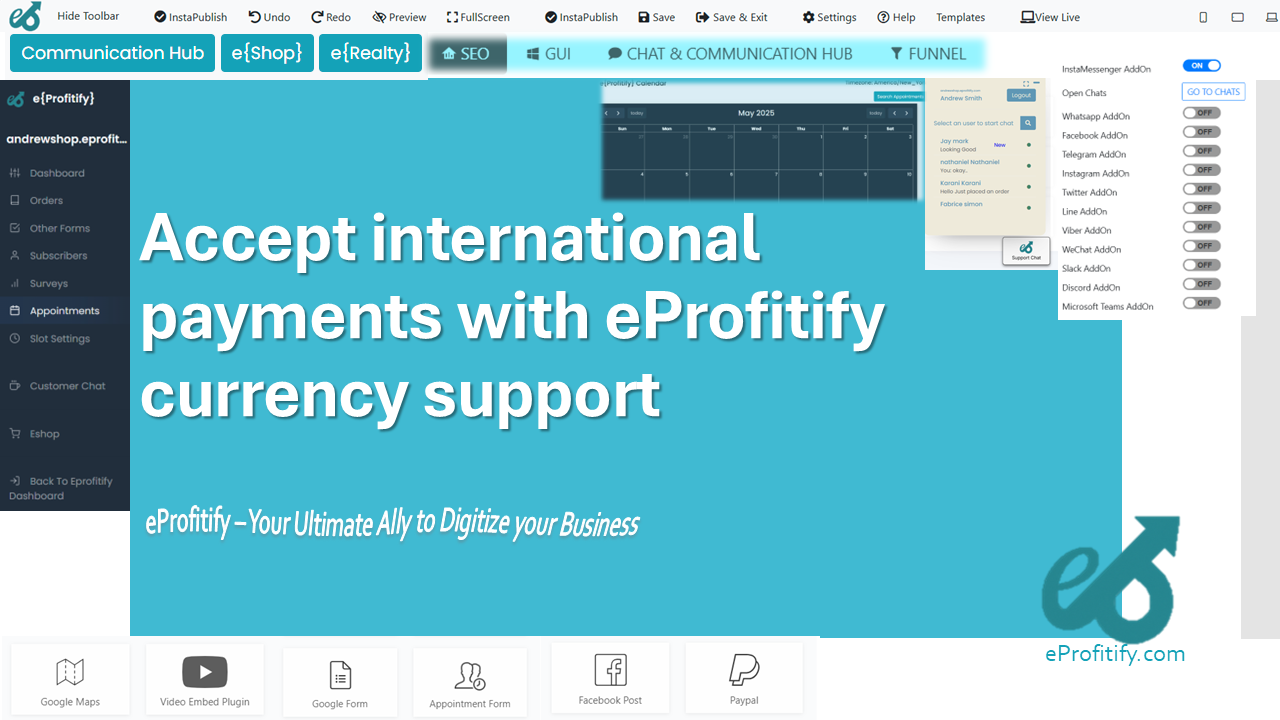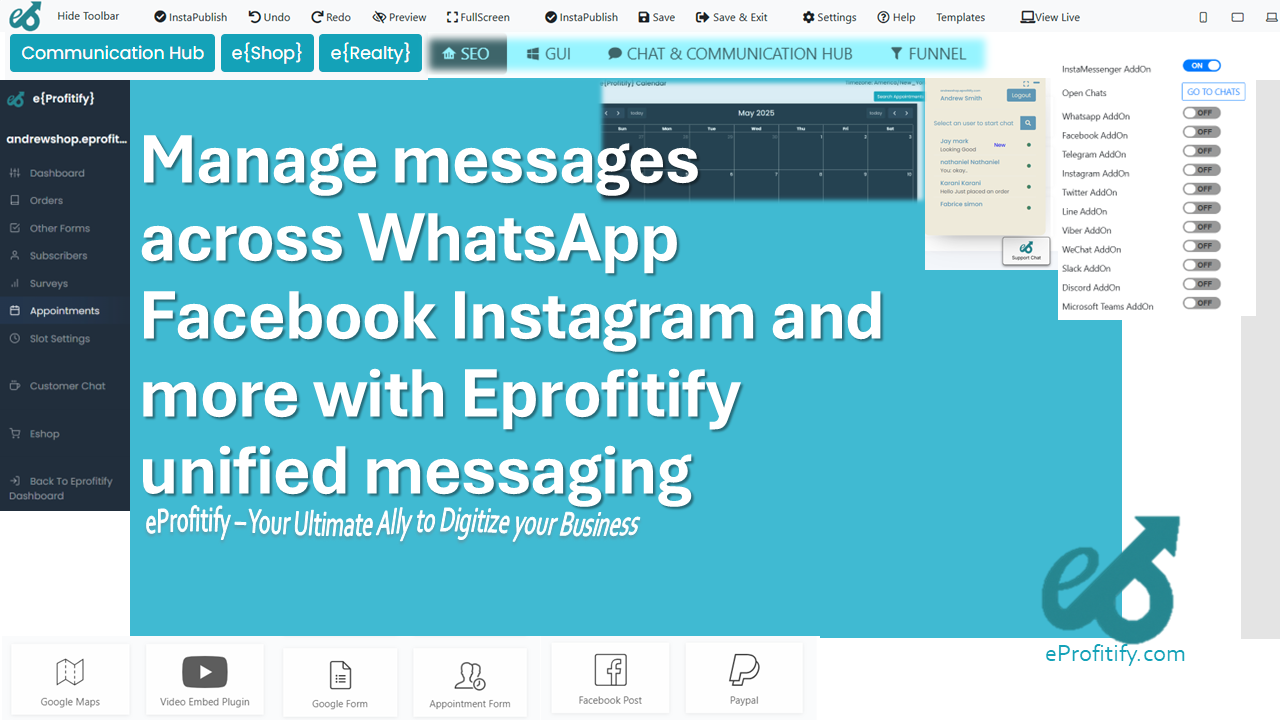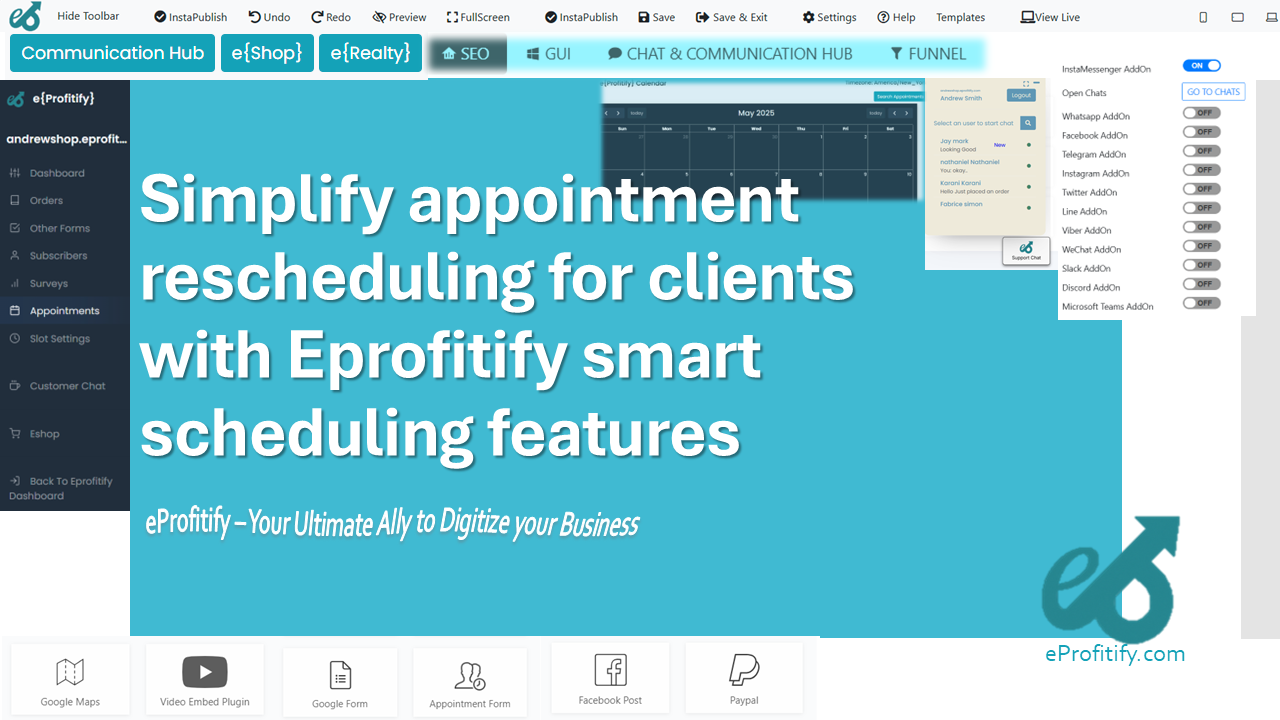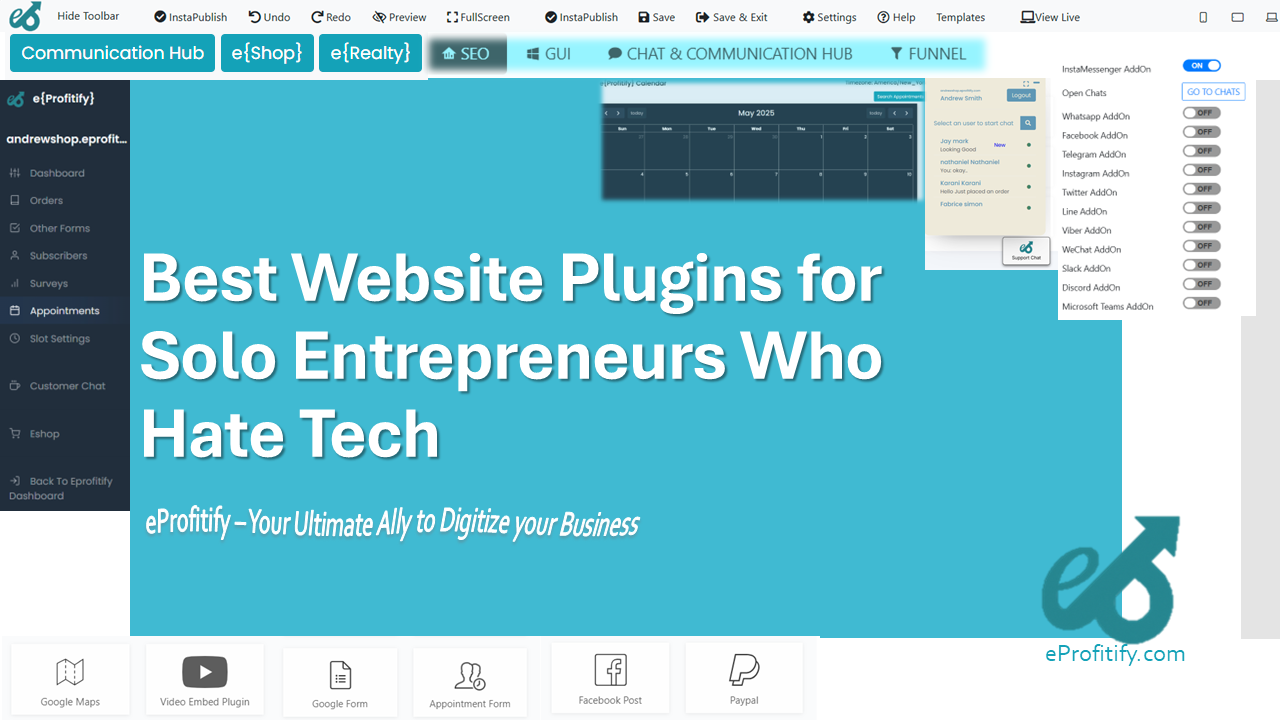How to Use Schema Markup for Rich Snippets
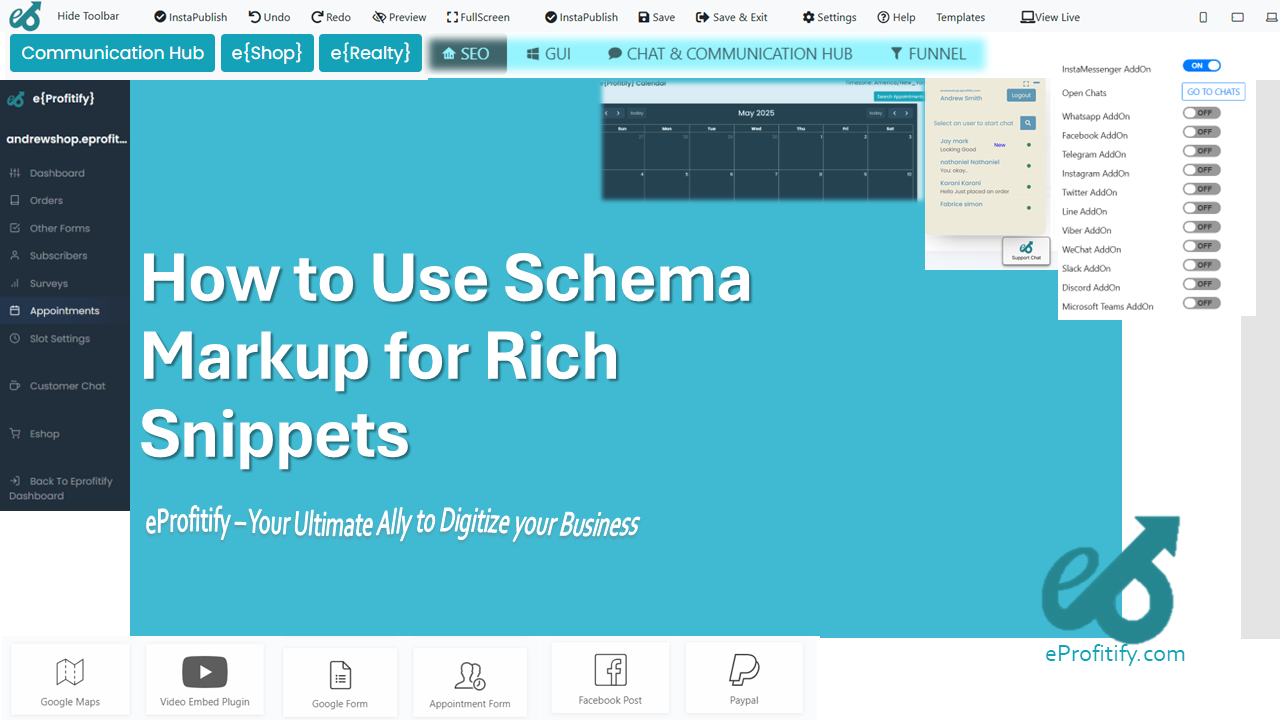
Schedule a LIVE Zoom call with an eProfitify Expert.
How to Use Schema Markup for Rich Snippets
Schema markup, a form of structured data vocabulary, helps search engines understand the context of website content, enabling them to display enhanced results known as rich snippets. These rich snippets—such as star ratings, product prices, event dates, or FAQs—improve visibility in search engine results pages (SERPs), driving higher click-through rates (CTR) and organic traffic. This article explores how to implement schema markup effectively and highlights tools like Eprofitify, a leading website publishing and management platform, which simplifies the process through integrated features.
The Importance of Schema Markup
-
Enhanced SERP Visibility:
Pages with schema markup rank an average of 4 positions higher in SERPs compared to non-marked-up pages (HubSpot, 2020). Rich snippets make listings more eye-catching, occupying additional visual space and outperforming standard results. -
Higher Click-Through Rates:
Websites using schema markup report up to 30% higher CTR due to rich snippets like recipe cook times, product availability, or review ratings. For eCommerce sites, this can directly translate to increased sales. -
Targeted Traffic:
Schema helps attract users searching for specific information. For instance, job postings with salary ranges or location details see 20% more applications (Schema.org case studies). -
Voice Search Optimization:
Over 40% of voice search results leverage structured data, making schema critical for voice SEO as smart devices prioritize concise, well-structured answers.
Step-by-Step Guide to Implementing Schema Markup
-
Identify Content Types:
Determine which content qualifies for rich snippets (e.g., products, articles, events, FAQs). Common schema types include:- Product: Price, availability, reviews.
- Article: Headline, publish date, author.
- Local Business: Address, opening hours.
-
Choose Schema Vocabulary:
Use Schema.org’s standardized formats. Google supports JSON-LD (recommended), Microdata, and RDFa. JSON-LD is easiest to implement and maintain. -
Generate Markup:
Tools like Google’s Structured Data Markup Helper or Eprofitify’s SEO Tools automate schema generation. For example, Eprofitify allows users to tag product pages, events, or blogs with schema in seconds via its drag-and-drop interface. -
Validate with Testing Tools:
Use Google’s Structured Data Testing Tool or Rich Results Test to check for errors. Fix issues like missing required fields or invalid syntax. -
Deploy on Your Website:
Embed the JSON-LD code in the<head>section of your HTML. Platforms like Eprofitify integrate schema directly into CMS workflows, eliminating manual coding. -
Monitor Performance:
Track CTR and rankings via Google Search Console. Eprofitify’s analytics dashboard consolidates SEO metrics, providing insights into how schema impacts traffic and conversions.
How Eprofitify Simplifies Schema Implementation
Eprofitify is a comprehensive website management platform designed to streamline SEO, customer engagement, and sales. Its features include:
-
Automated Schema Markup:
Eprofitify’s SEO tools auto-generate schema for pages, products, and events, ensuring compliance with Google’s guidelines. Users report 40% faster implementation compared to manual coding. -
Integrated CRM and Ecommerce:
Sync product data, customer reviews, and inventory levels to dynamically update schema, enhancing accuracy for eCommerce snippets. -
Appointment Management:
Automatically mark up service pages with event schemas, displaying booking slots and prices directly in SERPs. -
Instant Messaging:
Engage visitors via chatbots whose interactions can be structured with FAQPage schema, improving local SEO and visibility. -
Unified Analytics:
Monitor schema performance alongside CRM and sales data to measure ROI. Businesses using Eprofitify observe 25% higher organic traffic within six months of schema deployment.
Statistics Highlighting Schema’s Impact
- 58% of websites use schema markup (Search Engine Journal, 2023).
- Recipe pages with schema see 520% more traffic than those without (Ahrefs).
- Sites with product schema markup achieve 12% higher conversion rates (MoZ).
For Eprofitify users, these benefits are amplified. A case study showed a fitness studio using Eprofitify’s appointment and schema tools increased bookings by 35% through rich snippets displaying real-time class availability.
Conclusion
Schema markup is no longer optional—it’s a necessity for competitive SEO. By structuring data effectively, businesses unlock rich snippets that drive visibility, clicks, and revenue. Platforms like Eprofitify simplify this process with automated tools while offering complementary features like CRM, eCommerce, and analytics. As search algorithms evolve, leveraging schema with integrated solutions ensures websites stay ahead, delivering targeted results that resonate with users and search engines alike.

